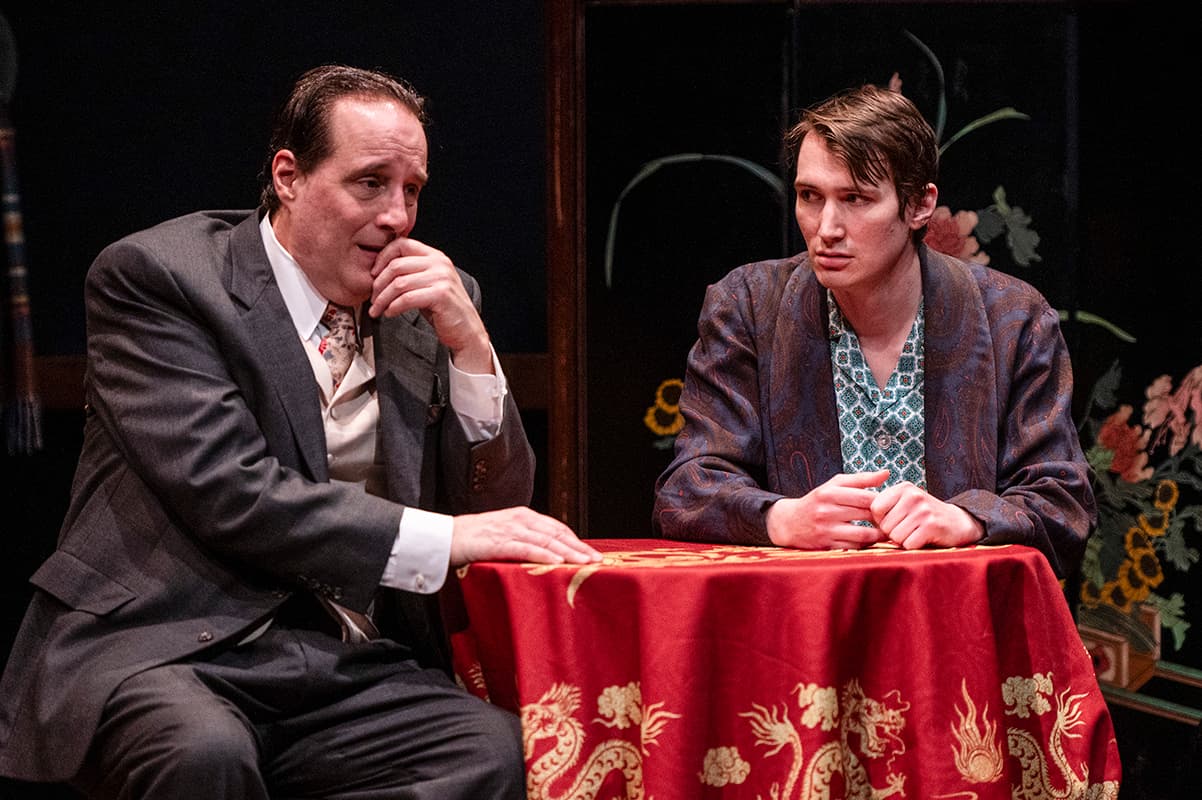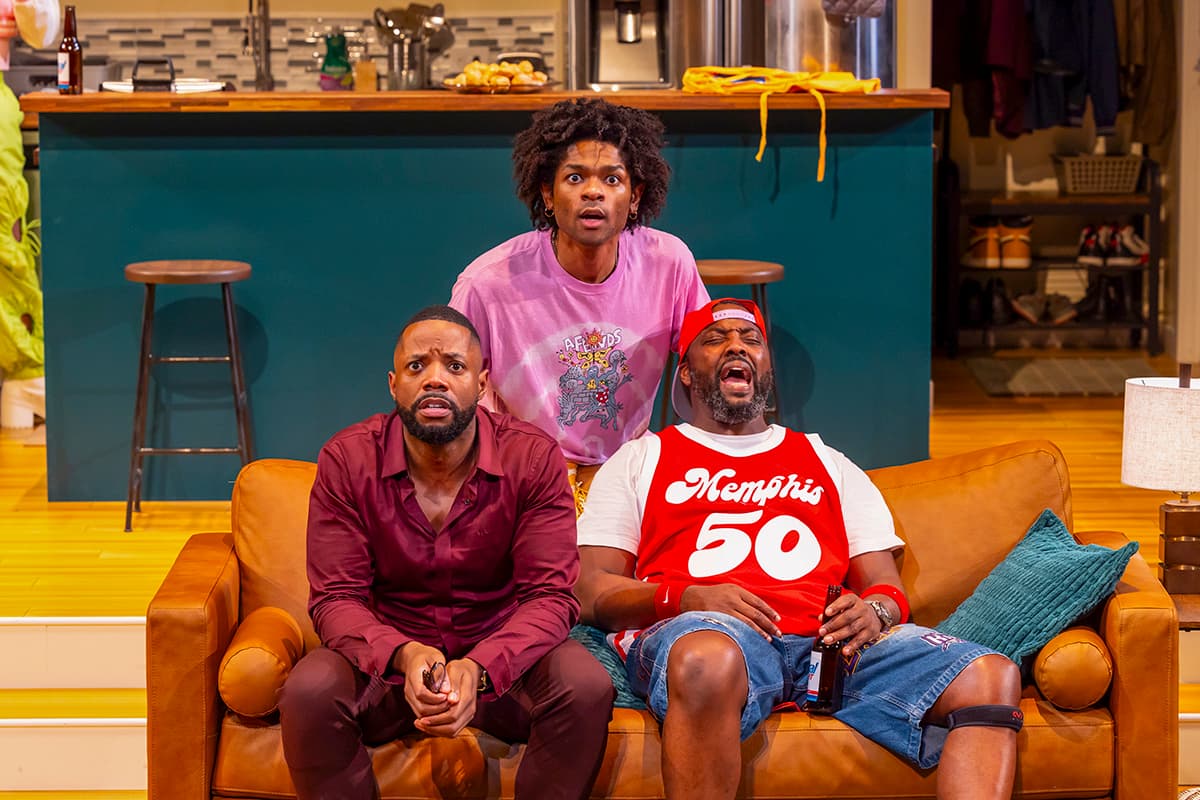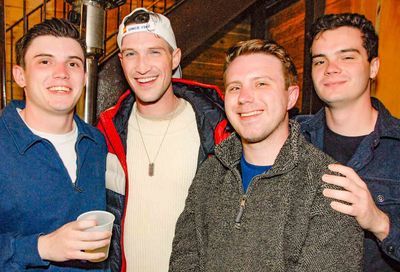‘Good Bones’ Review: Love Thy Neighbor
The cast of Studio’s World Premiere 'Good Bones' keeps tensions simmering in a clash between bougie and blue collar.

Before James Ijames won the 2022 Pulitzer Prize for Drama for writing Fat Ham, his queer Black remix of Hamlet, and years before that show opened to raves on Broadway, earning Ijames a Tony nomination for Best Play, the playwright was commissioned by Studio Theatre to deliver a new work.
For its notable foresight, Studio has been rewarded with Good Bones (★★★★☆), a blistering dramedy that should resonate soundly with the company’s audience — as with audiences at theaters like Studio in urban centers across America. Whether in D.C., Philly, Cleveland, or Kansas City, culturally aware city folk and suburbanites alike can find their footing in this layered look at class, race, and real estate.
And, for anyone unversed in the dynamics at play in the gentrification of urban neighborhoods, Ijames clearly delineates the various interests contested between new homeowners Travis (Joel Ashur) and Aisha (Cara Ricketts), and their steadfastly community-minded contractor Earl (Johnny Ramey).
Earl’s ever-present Pan-African kufi cap signals his solidarity with Black folks like him who have called this neighborhood home for decades. Informing Aisha that her beautiful, old house once was home to legendary neighborhood matriarch Sister Bernice, Earl raises an insistent voice for those being displaced from the community to usher in someone else’s version of progress. What Aisha, pregnant with her first child, coolly terms the “revitalization” of the hood, Earl calls gentrification.
Adding meaningful complication to the scenario, Aisha, an urban planner, and Travis, a restauranteur, also are Black. Further, the couple has to navigate their own class divide, since Travis grew up with and around money, while Aisha grew up in the nearby projects that are being demolished in order to revitalize the neighborhood.
She’s seen a whole lot of the world since, and doesn’t feel she has to apologize for working hard to attain financial success, or for wanting to own a piece of the community she calls home. Earl just dismisses her as “bougie,” like his college student sister Carmen (Deidre Staples, solid in a brief featured turn).
Ramey’s performance as Earl doesn’t divert often enough from the character’s earnest self-righteousness, but, throughout, he’s good at implying more than he says. There’s definitely more than merely class tension simmering between his conscientious contractor and Ricketts’ somewhat stuck-up but still appealing Aisha. Sexual tension threatens to singe their scenes, though Ashur’s blissfully privileged hunk Travis appears unaware.
Travis is also oblivious to the fallout when, in a fit of pique, he calls the police on a neighbor for playing their music too loud, too late. Such petty disputes can spark war and destruction, or the sort of police response that sparks protests — though Ijames brings this plot full circle with a conclusion that models admirable levels of contrition and community cooperation, if not dramatic credibility.
The multi-talented theater artist Psalmayene 24, whose work often touches on themes of community building, directs the world premiere production with a well-tuned ear for the conversations at hand, and the social politics on display. The text seems to offer more humor than what we get from this ensemble, but Ashur and Ricketts do cultivate a fun couple rapport, dancing around their kitchen to Nelly or Stevie Wonder, and Moyenda Kulemeka’s costumes lend healthy dashes of personality and style.
Misha Kachman’s realistic set for the couple’s handsome, renovated-by-Earl kitchen is just the right amount of new-meets-old house, where spirits of those who wandered the halls during Sister Bernice’s time still laugh and shout loudly enough that Aisha can hear them. She doesn’t seem haunted by the ghosts of the past, but rather, like Earl, just wants to understand what they have left to tell us.
Good Bones runs through June 18, at the Studio Theatre, 1501 14th St. NW. Tickets are $75 to $125. Call 202-332-3300, or visit www.StudioTheatre.org.
Support Metro Weekly’s Journalism
These are challenging times for news organizations. And yet it’s crucial we stay active and provide vital resources and information to both our local readers and the world. So won’t you please take a moment and consider supporting Metro Weekly with a membership? For as little as $5 a month, you can help ensure Metro Weekly magazine and MetroWeekly.com remain free, viable resources as we provide the best, most diverse, culturally-resonant LGBTQ coverage in both the D.C. region and around the world. Memberships come with exclusive perks and discounts, your own personal digital delivery of each week’s magazine (and an archive), access to our Member's Lounge when it launches this fall, and exclusive members-only items like Metro Weekly Membership Mugs and Tote Bags! Check out all our membership levels here and please join us today!























